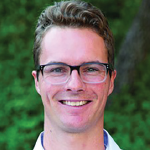
© sheff / shutterstock.com
I woke one morning with a fullness in my ear and half my face no longer responding to command. I tried to get out of bed but collapsed, unable to orient, the world spinning around me.
Explore This Issue
July 2021Well into my third year in medical school, I had yet to secure an otolaryngology elective due to scheduling logistics caused by COVID-19. Though I hoped to explore the specialty before making a career decision, I gained interest in other surgical areas due to increased clinical exposure in those fields and was near set on pursuing a different specialty. It was a complete surprise, then, to have my first clinical otolaryngology experience as a third year be that of a hospitalized patient with Ramsay Hunt syndrome.
COVID-19 and Specialty Selection
While many students enter medical school with ideas about their future career decision, most won’t make a selection until finishing the didactic curriculum and entering the clinical years. Students must gauge how well they fit a specialty by balancing numerous factors, including personality, specialty content, skills, mentorship, income, and geography, among others. Unsurprisingly, this decision is more commonly made after students have the opportunity to assess a day-to-day experience with direct patient and physician contact during clinical rotations.
For those with multiple interests, specialty selection is a consuming and iterative process that can feel near impossible given the variety of career opportunities in medicine and the relative lack of exposure. The stakes are high, given student debt considerations and reports of high burnout in certain fields. For other students, there’s little decision making involved. Some of my classmates decided on a future career after a single rotation. While the class of 2021 has wrapped up its residency application season, students graduating in 2022 are deep in discussions with faculty, advisors, and classmates about future career plans. It isn’t hard to imagine that COVID-19 has influenced this process.
The degree to which the pandemic has altered the medical education landscape is unprecedented. In a survey of 15 medical programs, nearly three-quarters of students reported that clinical rotations were cut short or canceled, with the same number expressing the sentiment that medical education had been significantly disrupted (BMC Med Educ. 2021;21:14). Ninety-three percent of students reported participating in clinical rotations with no in-person patient contact at the time of the study’s publication.
If not for my experience as a patient, I wouldn’t have been in any position at all to select a career in otolaryngology.
It’s unclear how limited clinical opportunities will influence career decision making, especially in regard to smaller, specialized fields like otolaryngology. In a recent report studying prospective urology applicants, 82% of students reported reduced opportunities for clinical exposure (Urology. 2020;146:36-42). With the cancelation of elective procedures and dramatic shifts in patient care, including the adoption of telehealth, many students question whether their clinical experiences are representative of what a future career may entail.
Behind the Decision Making
COVID-19 hasn’t completely left medical students in the dark, however, as the pandemic has fostered rapid change in the consumption of specialty-related information. Platforms like Zoom have promoted large-scale online communication, allowing students to attend virtual conferences or events, such as the introductory panel “Is Otolaryngology in Your Future?” put on by the AAO–HNS. Residency recruitment content is freely available online, and there has been an explosion of content in the medical podcast sphere. Institutions have also taken innovative steps to disseminate clinical experiences, with one neurosurgery group, for example, livestreaming surgical procedures (J Surg Educ. 2021;78:99-103).
To better understand how otolaryngology applicants are making their career decisions during the pandemic, I informally surveyed a half dozen of my classmates who decided to pursue the field. A common theme that emerged involved variety. Students appreciated the ability of an otolaryngologist to perform diverse procedures and have the opportunity to treat men, women, and children, while working in both inpatient and outpatient settings. Students gravitated to otolaryngology because of the interesting anatomy and the ability to treat patients with quality-of-life pathologies related both to the senses and the ability to communicate. Early exposure to the field by a passionate faculty mentor during the didactic years was cited as important in first gaining interest, but all students agreed that clinical rotations were essential for solidifying their career choice. Students felt that living the day-to-day life of an otolaryngologist and having the opportunity to put themselves in a physician’s shoes confirmed their decision.
Although new online resources have appeared, for me and many other medical students, clinical experience remains the most important factor in determining a future career choice.
Students gravitated away from other fields like neurosurgery and general surgery because they believed otolaryngologists offered a more relaxed, friendly culture. One student commented that the skill progression in an otolaryngology resident surpassed that of other surgical residents and felt that otolaryngology would give them the best opportunity to become a skilled surgeon at an efficient pace.
For some of my classmates, the pandemic did not impact the decision-making process, citing that they rotated through the specialty early on, before the largest spike in COVID-19 cases and subsequent elective procedure cancelations. One student commented that the pandemic and the resulting changes to clerkship rotations afforded him a new degree of flexibility and resiliency. Having adapted to countless last-minute, monthly scheduling changes, he gained confidence in applying to such a competitive field, despite uncertainty about matching or training at a different program, city, or state.
Other classmates felt as if COVID-19-related changes significantly altered their career trajectory. One student who loved his otolaryngology rotation hadn’t yet taken the Step-1 exam due to exam cancellations earlier in the year and therefore wasn’t sure about his application candidacy. He didn’t feel comfortable making a decision until he completed the exam, causing significant distress. Another student with strong interest in otolaryngology felt as if COVID-19 had colored his clinical experience and decided to take a research year to make certain of his career choice.
COVID-19 complicated my own experience. My Step-1 exam was delayed and I started clinical rotations two months later than anticipated. This shortened timeline made it difficult for me to finish required third-year rotations and to explore other specialties, especially given the limited capacity for rotating students in smaller fields like otolaryngology. If not for my experience as a patient, I wouldn’t have been in any position at all to select a career in otolaryngology. Instead, my own clinical experience learning about the hopes, fears, and challenges of living with a severe balance disorder, coupled with conversations with my otolaryngologist throughout the treatment course, sparked and solidified my desire to pursue the specialty.
The pandemic has altered the decision-making pathway for the upcoming class of 2022, though the extent and implications remain unclear. Although new online resources have appeared, for me and many other medical students, clinical experience remains the most important factor in determining a future career choice.
 Erik Vanstrum is an MD candidate in the class of 2022 at the Keck School of Medicine of USC in Los Angeles. He is applying into otolaryngology during the current cycle.
Erik Vanstrum is an MD candidate in the class of 2022 at the Keck School of Medicine of USC in Los Angeles. He is applying into otolaryngology during the current cycle.
